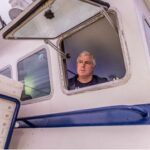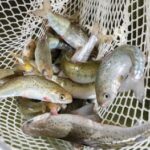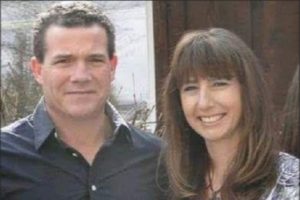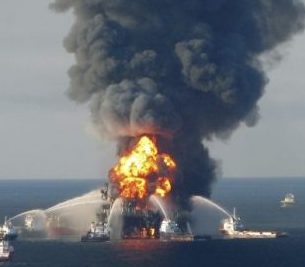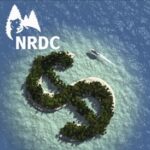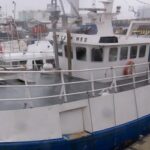Tag Archives: fisherman Stan Rennie
Hartlepool fishermen reveal how they are still feeling impact of mass crustacean die-offs with fears for entire future
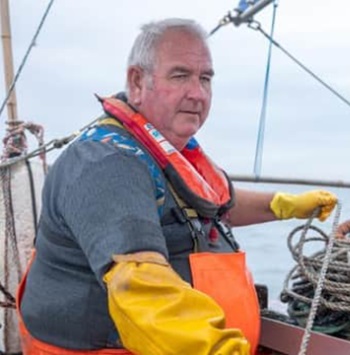 Hartlepool fishermen have spoken of their heartbreak as they say hundreds of years of heritage face being wiped out. Inshore fishers say stocks of crab, lobster and other marine life have not recovered since the sudden and huge crustacean die-offs witnessed from Seaham to Whitby in 2021. Several recent smaller die-offs have been reported in Hartlepool Bay and Teesmouth including a large number of razor clams and cockles on the beach at Seaton Carew. Dead and twitching crabs, similar to those seen in 2021, have also been picked up at sea. Fishermen, together with scientists and supporters, are continuing to fight for answers and are investigating to establish the cause of the ‘ecocide’ that has destroyed livelihoods. more, >>CLICK TO READ<< 09″25
Hartlepool fishermen have spoken of their heartbreak as they say hundreds of years of heritage face being wiped out. Inshore fishers say stocks of crab, lobster and other marine life have not recovered since the sudden and huge crustacean die-offs witnessed from Seaham to Whitby in 2021. Several recent smaller die-offs have been reported in Hartlepool Bay and Teesmouth including a large number of razor clams and cockles on the beach at Seaton Carew. Dead and twitching crabs, similar to those seen in 2021, have also been picked up at sea. Fishermen, together with scientists and supporters, are continuing to fight for answers and are investigating to establish the cause of the ‘ecocide’ that has destroyed livelihoods. more, >>CLICK TO READ<< 09″25In a proud and troubled UK town, voters wonder whether their election choice will make a difference
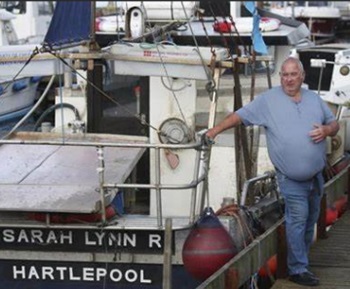 “At the last election, I voted Conservative because Johnson promised our waters back, and lied through his teeth,” said Stan Rennie, a fisherman who has caught lobster off Hartlepool for five decades but says he can scarcely scrape a living anymore. “Because we’re the northeast, I don’t think the government even knows we exist,” he said. “We’re the forgotten land.” A proud, rugged town jutting into the North Sea 250 miles (400 kilometers) north of London, Hartlepool is scarred by industrial decline. The shipyards and steelworks that once employed thousands are long gone. The fishing fleet has been shrinking for years. In a 2016 referendum, Hartlepool voted heavily to leave the European Union, persuaded by Johnson and other Brexit-backers that quitting the bloc would let the U.K. control immigration and free up billions in cash for struggling communities. photos, more, >>CLICK TO READ<< 10:56
“At the last election, I voted Conservative because Johnson promised our waters back, and lied through his teeth,” said Stan Rennie, a fisherman who has caught lobster off Hartlepool for five decades but says he can scarcely scrape a living anymore. “Because we’re the northeast, I don’t think the government even knows we exist,” he said. “We’re the forgotten land.” A proud, rugged town jutting into the North Sea 250 miles (400 kilometers) north of London, Hartlepool is scarred by industrial decline. The shipyards and steelworks that once employed thousands are long gone. The fishing fleet has been shrinking for years. In a 2016 referendum, Hartlepool voted heavily to leave the European Union, persuaded by Johnson and other Brexit-backers that quitting the bloc would let the U.K. control immigration and free up billions in cash for struggling communities. photos, more, >>CLICK TO READ<< 10:56
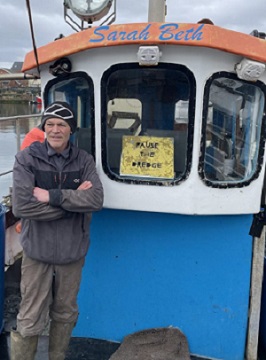
Lobstergate: The unintended consequences of Britain’s Freeports
In the distance is Bran Sands, a jut of land perched at the face of the estuary where the river meets the North Sea, and a dredger is passing by, moving tonnes of sediment from the River Tees to be disposed of some miles out. Fishermen Paul Widdowfield and Stan Rennie tell me this sight has become a daily occurrence. To them, it is a salty and unwelcome one. Neither Widdowfield or Rennie have gone out on their day boats for almost 18 months now. Both had fished out of Hartlepool for 40 years or more, catching brown and velvet crabs and highly prized lobsters. Today, in an area synonymous with fine shellfish, there is little or nothing left to land. The Teesside Freeport is, according to the government, the UK’s largest, “driving growth in renewables, advanced manufacturing and the chemicals and process sectors.” >click to read< 07:53
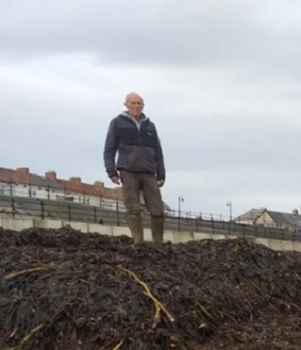
Killing joke: how Defra dismissed the Tees Bay die-off
It seems that no matter how often Defra and its partner agencies are exposed as inept over their handling of this crisis, their response is simply to deny the truth and carry on. The grim response of the Environment Agency (EA) to the mass crustacean die-off in Tees Bay moved up a gear last week. Where once they only patronised the inshore fishermen about the probable cause, they have now shown themselves prepared to do it on national TV. Friday 30 September Channel 4 News featured the ongoing tragedy and, in the process, interviewed Hartlepool fisher, Stan Rennie. Video link, >click to read< For more about this, >click here< 07:52
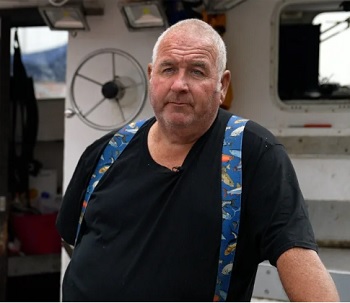
Fishermen begin legal campaign over dead shellfish
A report suggested algae was to blame, but the fishermen fear the deaths were linked to the release of the chemical pyridine as a result of dredging in the River Tees in October. Smaller catches are threatening their livelihoods, they say. Paul Widdowfield, who has fished all his adult life in the waters by Hartlepool, said his daily catches could now be 50 times smaller than three years ago, losing him £1,000 a day. Stan Rennie, whose family has been fishing for 500 years, said: “It means absolutely everything to me. It’s all I’ve ever done. “Now, we’re facing hardship because of the catches. The boat will probably have to go by the end of the year.” It was an “environmental disaster”, Mr Widdowfield and Mr Rennie said. >click to read< 09:10
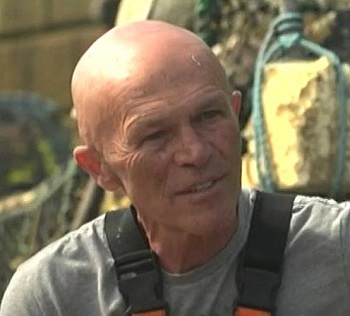
Hartlepool fishermen fear for future after crab deaths
Mass wash-ups were first reported in October with the government saying a natural algal bloom was to blame. Campaigners and fishermen disputed that and instead cited the dumping of dredged materials from the River Tees, which was “ruled out” by officials. Fisherman Paul Widdowfield, from Hartlepool, said he had caught “nothing at all” since October. Crab fisherman Stan Rennie said his family had fished the waters off Hartlepool for hundreds of years but he feared that would be “lost” with him. “We don’t know how the eco-system can come back,” Mr Rennie said. >click to read< 9:34

































